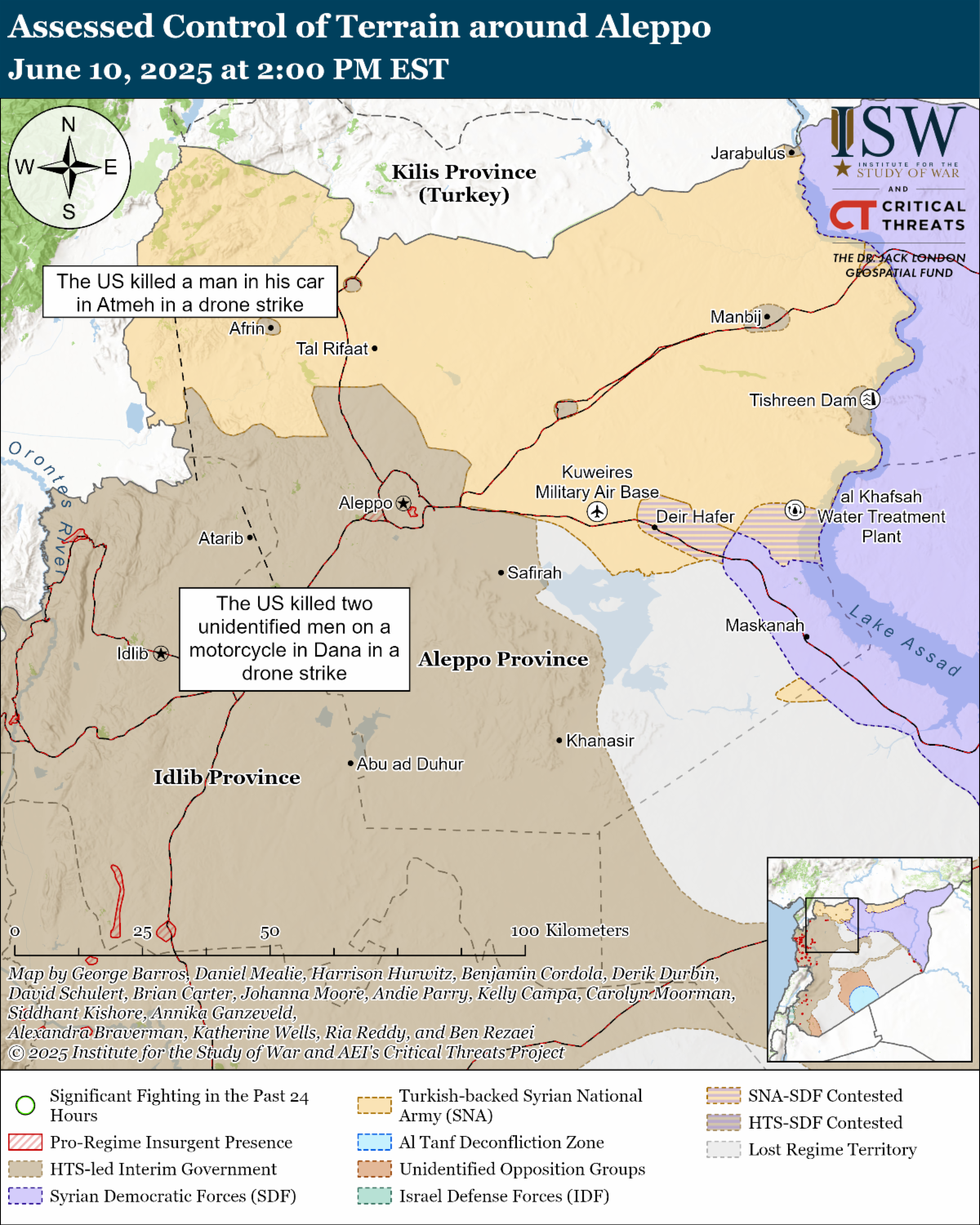The Syrian transitional government has quickly responded to several false reports of insurgent activity in coastal Syria over the last week. The government’s rapid response demonstrates that the government remains concerned about violence in coastal Syria despite low levels of Alawite insurgency activity there. Multiple factors, including a lack of Alawite support for insurgent groups, government pressure, and poorly executed insurgent operations, have probably contributed to the decrease in insurgent activity in coastal areas. The transitional government deployed several General Security Services (GSS) and Defense Ministry units to Daliyah, Latakia Province, on June 4 following false reports about an Assadist insurgent attack in the town. The “attack” was reportedly a personal verbal dispute between two people that local officials overstated. Alawite militia “Coastal Shield Brigade” denied that any insurgent attack targeted Daliyah on June 4. The local transitional government officials likely responded to the rumored attack with force and urgency, given that neighboring areas participated in the March attacks against the GSS. Government forces imposed a curfew on Daliyah and arrested alleged “outlaws.“ Some of the defense ministry units that deployed to Daliyah committed atrocities targeting Alawite communities on June 4 and 5. 50th Division soldiers reportedly killed three men and burned cars and homes in the neighboring villages of Daliyah. The transitional government arrested the soldiers on June 9, however. This incident underscores the threat posed by the government’s continued discipline issues within certain MoD units. Poorly disciplined units that are deployed to areas in times of crisis could increase the risk of minor incidents devolving into widespread sectarian violence, like that seen in coastal Syria in March 2025.
The transitional government does not appear to be similarly concerned about small-scale insurgent activity in other areas of Syria. Likely ISIS fighters detonated improvised explosive devices (IED) targeting GSS positions in Deir ez Zor province, and unspecified militants detonated IEDs targeting other GSS positions in Daraa from June 4 to June 10, but Damascus had a minimal response. Part of the transitional government’s reaction to incidents in coastal Syria may be linked to continued threats from organized groups and former militia leaders in coastal Syria. Syrian businessman and the maternal cousin of Bashar al Assad, Rami Makhlouf, claimed in late May 2025 that June 2025 will mark the “beginning” of anti-government activity and that this activity will accelerate in July 2025.
Key Takeaways:
- Syrian Insurgencies: The Syrian transitional government has quickly responded to several false reports of insurgent activity in coastal Syria over the last week. The government’s rapid response demonstrates that the government remains concerned about violence in coastal Syria despite low levels of Alawite insurgency activity there. The transitional government does not appear to be similarly concerned about small-scale insurgent activity in other areas of Syria.
- Iran Nuclear Negotiations: Iran is preparing a counter-proposal for the United States that includes terms for an interim deal. Iran may calculate that reaching an interim deal with the United States will delay or prevent snapback sanctions or potential US or Israeli strikes on Iran.
- Hezbollah Reconstitution: Hezbollah is reportedly prioritizing domestic drone production in order to reduce its reliance on procuring Iranian weapons. Hezbollah likely seeks to prioritize domestic drone production after recent setbacks that have complicated its ability to procure and smuggle Iranian weapons into Lebanon. Hezbollah may be able to smuggle some small shipments of arms through Syria into Lebanon, but Hezbollah will find it far more challenging to smuggle in missile or missile production components.
| 




 [국방부] 국방홍보원 유튜브 KFN '골드버튼' 영예
[국방부] 국방홍보원 유튜브 KFN '골드버튼' 영예
 [ISW] 러시아의 공세 캠페인 평가, 2025년 6월 10일
[ISW] 러시아의 공세 캠페인 평가, 2025년 6월 10일